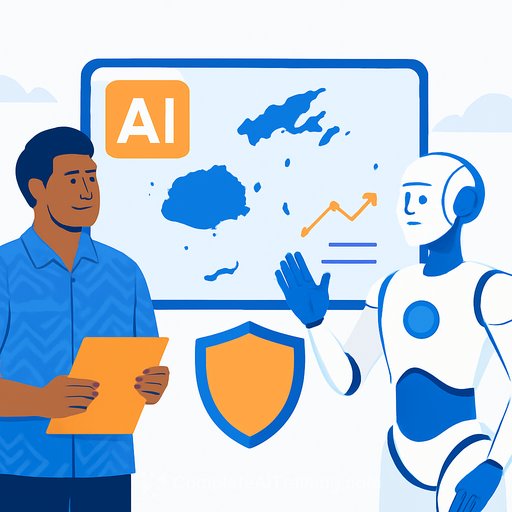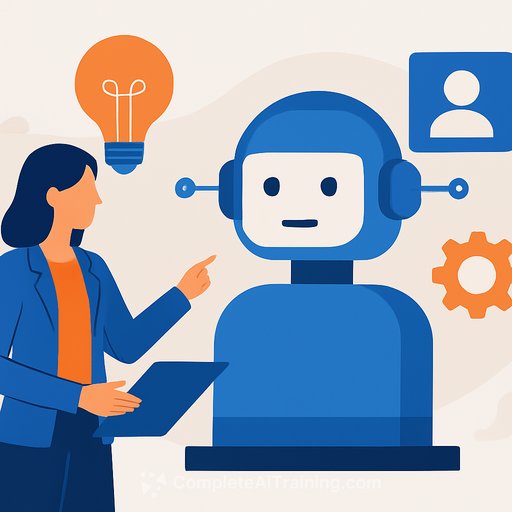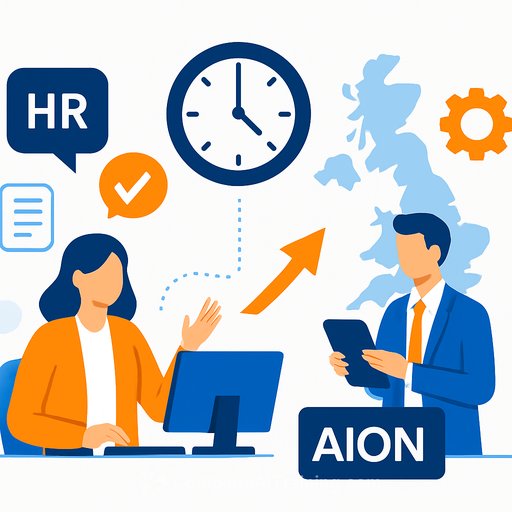AI in Fiji: What HR Needs to Do Now
AI is moving into Fiji's economy, and it will test the country's workforce. At a recent workshop hosted by Fiji National University, National Training and Productivity Centre Director, Francois Trachy, warned that adoption without preparation could put jobs at risk.
"Of course, when the industrial revolution came in the 19th century, those who didn't adapt got hurt, and those who did saw incredible gains in productivity and quality of life," he said. His message was plain: AI is part of the digital and IT shift. It will happen, so we should adapt-responsibly-and back it with strong rules that protect workers.
What this means for HR
HR sits at the point of impact. Your choices in the next 6-12 months will shape job security, skills, and trust inside your organization.
- Job risk: Routine tasks in operations, finance, customer service, and admin are most exposed.
- Quality risk: Bias, privacy breaches, and overreliance on AI can create legal and brand issues.
- Change risk: Tool-first adoption without governance leads to shadow IT and confusion.
90-day HR action plan
- Task audit: Map top 50 recurring tasks by function. Flag candidates for automation and augmentation.
- Pilot safely: Run 2-3 low-risk pilots with clear success criteria (time saved, error rate, employee feedback).
- Skills map: Update role profiles with AI-related skills (prompting, QA, data hygiene, tool oversight).
- Training plan: Launch short, role-based learning paths and office hours for hands-on support. Consider external courses to speed this up. See courses by job and the latest AI courses.
- Policy and governance: Publish an acceptable-use policy, data rules, and a human-in-the-loop standard.
- Legal and labor checks: Align with contracts, privacy law, and union agreements. Document role changes.
- Change comms: Share the why, the plan, and the safety nets. Set expectations about job redesign and reskilling.
- Metrics: Track hours saved, error rates, training completion, and redeployment vs. redundancy.
Responsible AI guardrails HR should lead
- Data rules: No confidential or personal data in public tools. Use approved systems only.
- Human oversight: Require review for outputs that affect people, money, or safety.
- Bias checks: Test outputs for disparate impact across gender, ethnicity, age, and region.
- Procurement: Vendor due diligence on security, audit logs, model behavior, and IP.
- Privacy impact: Run DPIAs for high-risk use cases. Document mitigations.
- Incident playbook: Define how to report, triage, and fix AI-related errors or breaches.
For broader context on worker protection and policy, review the OECD AI Principles and the ILO's analysis on AI and jobs here.
Reskilling that fits budgets and schedules
- Microlearning: 20-30 minute modules built around real tasks (reports, emails, customer replies).
- Role-based paths: Different tracks for HR, finance, service, sales, and operations.
- Peer coaching: Appoint "AI champions" in each team for weekly clinics.
- Incentives: Tie skill milestones to recognition or small bonuses.
- Verification: Use simple assessments and portfolio work to prove skill.
Workforce planning moves
- Job redesign first: Shift tasks, not people, where possible. Add "AI oversight" to job descriptions.
- Redeployment paths: Create clear routes from at-risk roles to growing roles.
- Selective hiring pause: Freeze replacements in high-automation roles and upskill internally.
- Apprenticeships: Pair junior staff with AI-enabled workflows to grow productivity fast.
- Transition support: If roles are removed, offer training, placement help, and fair packages.
Metrics your leadership will care about
- Time saved per process (baseline vs. current)
- Quality metrics (error rates, rework)
- Training completion and proficiency by role
- Redeployment ratio (redeployed vs. redundant)
- Fairness indicators (no adverse impact found in audits)
- Incident count and response time
Trachy's point stands: "It's going to happen whether we like it or not... so we better adapt, but responsibly." Strong regulation matters, and so does what HR does inside each company-clear policies, steady training, and fair transitions. Do that, and Fiji's workforce can keep its footing while productivity improves.
Your membership also unlocks:






